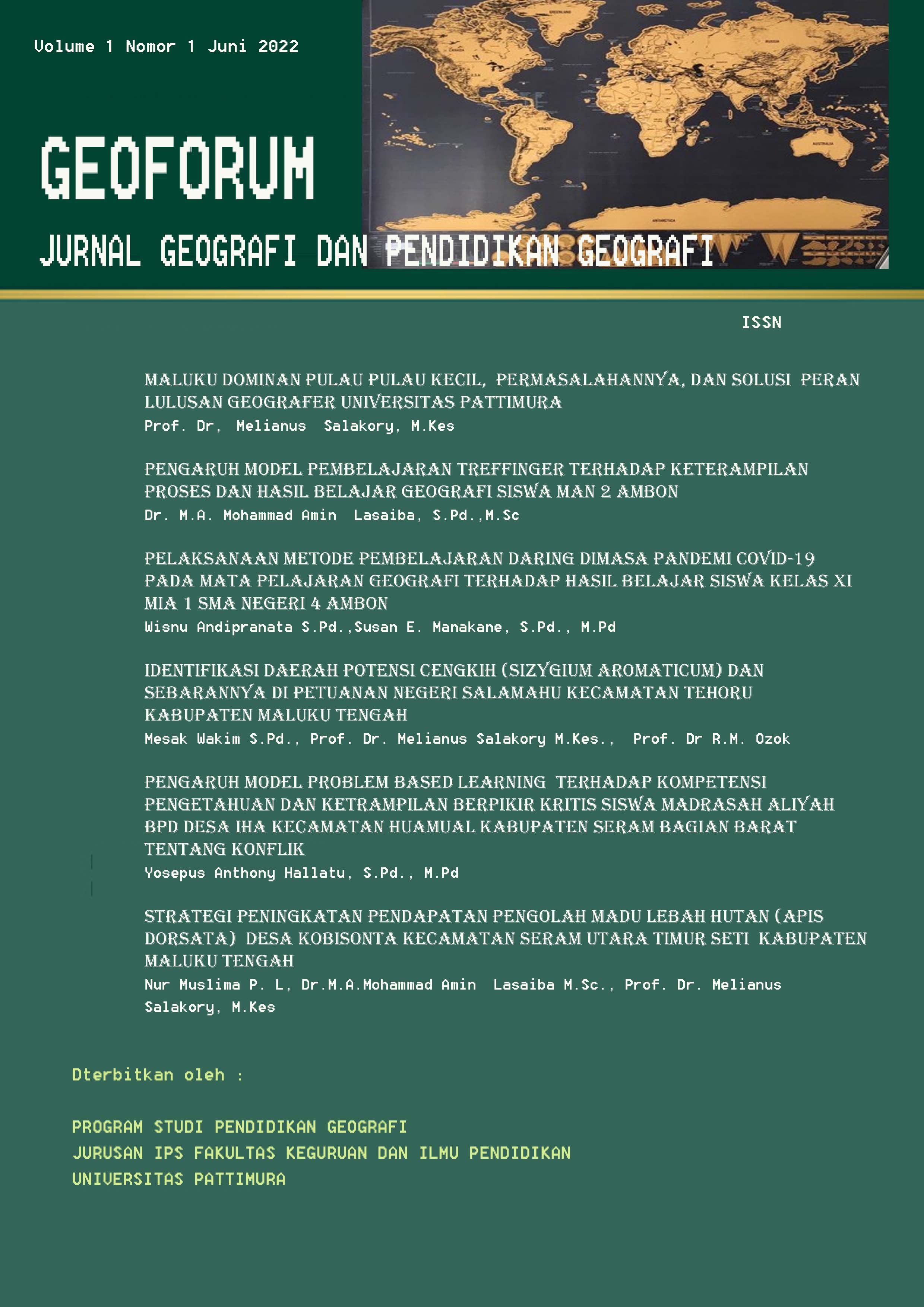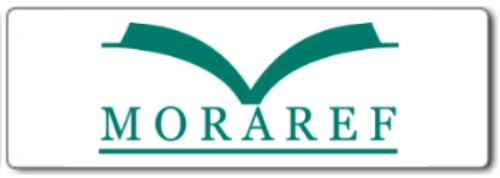The Influence of the Problem-Based Learning Model on Knowledge Competence and Critical Thinking Skills of Students at Madrasah Aliyah BPD Desa Iha, Huamual District, West Seram Regency, Regarding Conflict
Pengaruh Model Problem Based Learning Terhadap Kompetensi Pengetahuan dan Ketrampilan Berpikir Kritis Siswa Madrasah Aliyah BPD Desa Iha Kecamatan Huamual Kabupaten Seram Bagian Barat Tentang Konflik
Abstract
This study aims to determine the influence of the problem-based learning model on students' knowledge competence and critical thinking skills regarding inter-village conflict. The research design used is an experimental design with a pretest-posttest randomized control technique. The research population includes all 11th-grade classes at Madrasah Aliyah BPD (Village Management Agency) Iha, Maluku Province, which consists of three courses. The sample consists of two classes: XI 2, as the experimental class implementing the problem-based learning model, and XI 3, as the control class implementing the direct instruction model. The analysis of students' knowledge competence and critical thinking skills was conducted using a t-test. The results show that the descriptive analysis indicates that the problem-based learning model effectively enhances students' knowledge competence and critical thinking skills based on the following factors: (1) student activity levels are categorized as active, and (2) learning outcomes mastery is achieved. It is evidenced by a significance value of 0.000 ≤ 0.05 and a t-value (5.637) ≥ t-table (1.688). It indicates that there is a significant difference in the post-test mean scores, with the problem-based learning model being more effective than the direct instruction model in improving knowledge competence and critical thinking skills.
Downloads
References
Arikunto. (1984). Dasar-Dasar Evaluasi Pendidikan. Jakarta: Bina Aksara.
Arthur, A. S. (1986). Conflict and Cohesion. Dalam The Journal of Conflict Resolution. Vol. 20. (1),143-155. [Online]. Tersedia: http://infotrac.galegroup.com [28 November 2016]
Christoper, R. D. (2009). Reconciliation and Revitalization: The Resurgence of Tradition in Postconflict Tobelo, North Maluku, Eastern Indonesia. Dalam The Journal of Asian Studies. Vol. 68. (4),1077-1087. [Online]. Tersedia: http://infotrac.galegroup.com [28 November 2016]
Claire, M. and Betsy, P. (2001). Assessing the Effectiveness of Problem-Based Learning in Higher Education: Lessons From the Literature. Dalam Education Journal. Vol. 15. (3),101-112. [Online] Tersedia: http://journals.cambridge.org/action/login [28 November 2016]
Djamrah. (2002). Psikologi Belajar. Jakarta: Rineka Cipta.
Douglas, P. and Bjorkqvist, K. (1999). Culture and Conflict Resolution/Culture Variation and Resolution: Alternatives to Violence. Dalam Journal America Anthropologist. Vol. 101. (4),870-872. [Online]. Tersedia: http://infotrac.galegroup.com [28 November 2016]
Gleiser and David. (2005). Moral Conflict: When Social Worlds Collide. Dalam International Journal of Conflict Management. Vol. 10. (3),300-312. [Online]. Tersedia: http://infotrac.galegroup.com [28 November 2016]
Jerry, J. V. (2007). Clarifying Interpersonal and Social Values Conflict Among Recreationists. Dalam Journal of Lesisure Research. Vol. 39. (1),182-195. [Online]. Tersedia: http://infotrac.galegroup.com [28 November 2016]
Jordan and Thomas. (1999). Confronting Conflict. A First Aid Kit for Handing Conflict. Dalam International Journal of Conflict Managament. Vol. 10. (3),304-315. [Online]. Tersedia: http://infotrac.galegroup.com [28 November 2016]
Joseph, M. F. (1974). Continuities In the Theory of Violence. Dalam The Journal of Conflict Resolution. Vol. 18. (1),117-127. [Online]. Tersedia: http://infotrac.galegroup.com [28 November 2016]
Kemdikbud. (2013). Ilmu Pengetahuan Sosial Buku Guru Kelas VII SMP. Jakarta: Badan Pengembangan Sumber Daya Manusia Pendidikan Dan Kebudayaan Dan Penjaminan Mutu Pendidikan.
Lasaiba, M. A. (2012). Perubahan penggunaan lahan di Kota Ambon tahun 2002-2009. Disertasi. http://etd.repository.ugm.ac.id/penelitian/detail/54572
Pruitt dan Jeffrey. (2004). Teori Konflik Sosial. Pustaka pelajar: Yogyakarta.
Sarah, W. K. and Ruth, W. T. (2016). A Critical Analysis On the Transition Dynamics and Student Transition Adjustment From Preschool to Lower Primary School in Kenya. Dalam International Journal of Education and Research. Vol. 4 (2),115-152. [Online]. Tersedia: http://journals.cambridge.org/action/login [28 November 2016]
Slameto. (2010). Belajar dan Faktor-faktor yang Mempengaruhinya. Jakarta: PT. Rineka Cipta.
Valdes, R. B. (2009). Students and Tutors Social Representati ons of Assessment in Problem-Based Learning Tutorials Supporting Change. Dalam Education Journal. Vol. 10. (4),78-88. Tersedia: http://journals.cambridge.org/action/login [28 November 2016]
Copyright (c) 2022 Yosepus Hallatu

This work is licensed under a Creative Commons Attribution 4.0 International License.





















